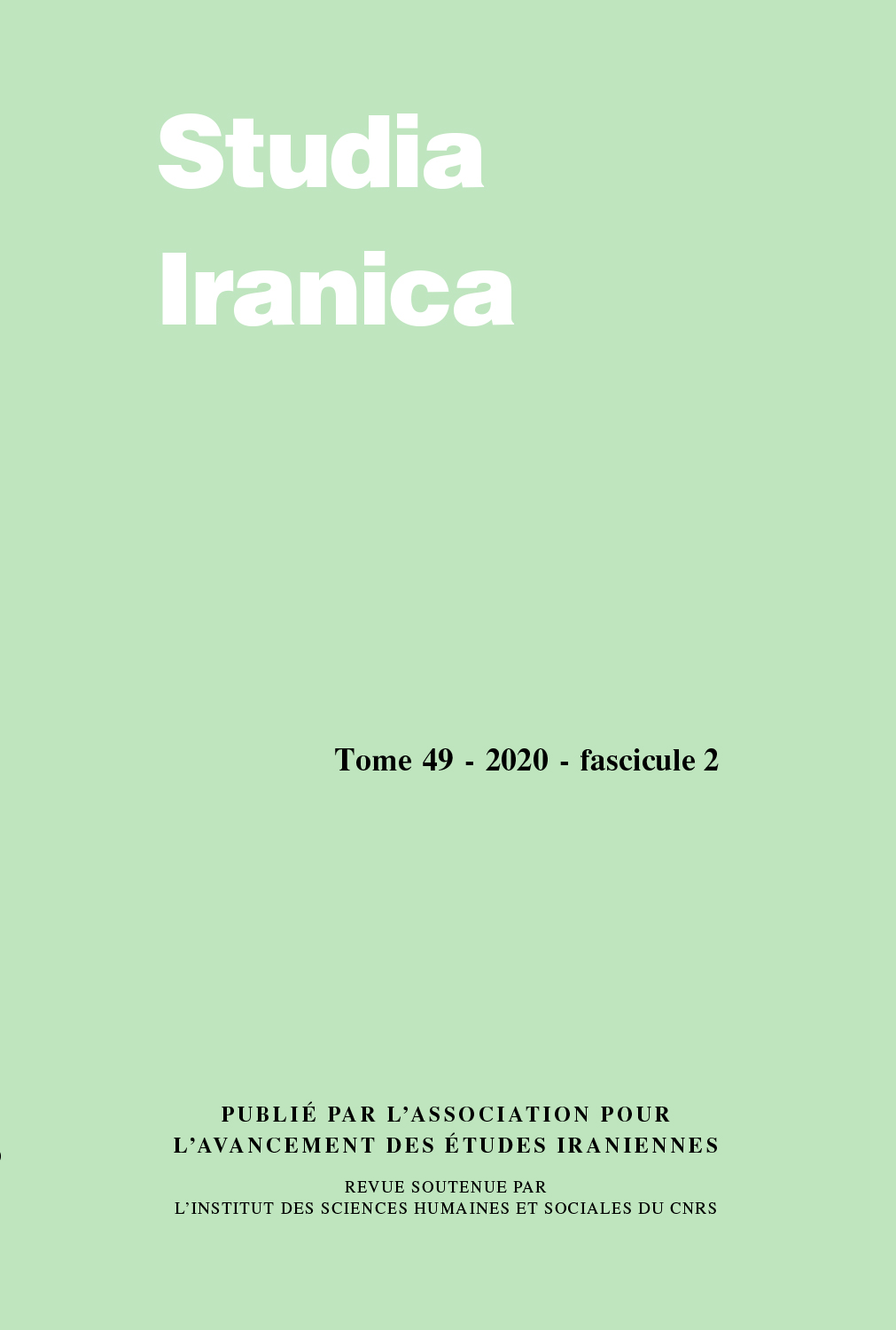 previous article in this issue previous article in this issue | next article in this issue  |

Preview first page |
Document Details : Title: Mu'tazilism in Ray and Astarābād: Abū l-Faḍl al-'Abbās b. Sharwīn Subtitle: (Studies on the Transmission of Knowledge from Iran to Yemen in the 6th/12th and 7th/13th c., II) Author(s): ANSARI, Hassan , SCHMIDTKE, Sabine Journal: Studia Iranica Volume: 41 Issue: 1 Date: 2012 Pages: 57-100 DOI: 10.2143/SI.41.1.2170701 Abstract : Among the Zaydī students of 'Abd al-Jabbār al-Hamadhānī (d. 415/1024) was Abū l-Faḍl al-'Abbās b. Sharwīn who hailed from Astarābād. While his opus magnum on theology, Yāqūtat al-īmān wa-wāsiṭat al-burhān was known in 9th/16th-century Iran, no manuscript has so far surfaced. It is preserved, however, in the form of a paraphrastic commentary on it by the Yemenī Zaydī theologian al-Ḥasan al-Raṣṣāṣ (d. 584/1188). In addition, Ibn Sharwīn composed a text containing theological definitions, a critical edition of which is presented here on the basis of the single extant manuscript from Yemen. He is also known to have written a Kitāb al-Madkhal fī uṣūl al-dīn of which a partial copy is perhaps preserved in a manuscript of Yemeni origin that now belongs to the Ambrosiana library in Milan. Abū l-Faḍl al-'Abbās b. Sharwīn, originaire d’Astrarābād, figure parmi les disciples zaydī de 'Abd al-Jabbār al-Hamadhānī (m. 415/1024). Bien que son opus magnum sur la théologie, intitulé Yāqātat al-īmān wa-wāsiṭat al-burhān, était connu en Iran au IXe/XVIe siècle, aucun manuscrit de l’ouvrage n’a été repértorié à ce jour. Il a cependant été préservé à travers un commentaire paraphrastique écrit par un théologien zaydite du Yemen al-Ḥasan al-Raṣṣāṣ (m. 584/1188). De plus, Ibn Sharwīn a composé un texte consacré aux définitions théologiques dont l’édition critique, basée sur le seul manuscrit connu conservé au Yemen, fait l’objet de la présente publication. Ibn Sharwīn est également connu comme l’auteur du Kitāb al-Madkhal fī uṣūl al-dīn dont une copie partielle a peut-être été préservée dans un manuscrit d’origine yemenite conservé actuellement à la bibliothèque Ambrosiana de Milan. |
|


